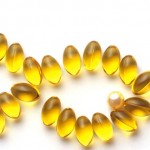Train to be an Olympian – Supplements for Sports Performance
 The Olympics has arrived. Over the next two weeks, athletes and citizens around the world will converge in the historical streets of London. Old records will be broken, new athletes will join the ranks of legends, and visitors of all cultures will put aside their differences to celebrate the greatness of the human spirit…
The Olympics has arrived. Over the next two weeks, athletes and citizens around the world will converge in the historical streets of London. Old records will be broken, new athletes will join the ranks of legends, and visitors of all cultures will put aside their differences to celebrate the greatness of the human spirit…
Ok, ok. I’ll leave the relentless rhetoric to NBC. As culturally glorified as the Olympics are, for many of us, it simply serves as an opportune time to discover new sports we’ve never heard of, and to shamelessly gawk at the amazing physiques of world-class athletes. For me, the latter tends to be my primary activity. Watching Aquaman (err, Michael Phelps*) climb out of the pool, with his cut abs and broad shoulders, is candy for the eyes. Watching USA’s basketball squad literally jump over their competition for dunks makes me want to break out the trampoline. And watching the weight lifters… well that just leaves me depressed about my muscle mass.
At the conclusion of the Olympics, I consistently am left with the same feeling: inspiration. Inspiration to hit the gym, and get crazy fit, just like an Olympian. This time I am going to try to make it a reality. To do it right, I decided to do some research on NATURAL supplements that can help with my sports performance. I’ve written about a few that seemed promising and are a bit more obscure. I’ve presented the biological premise behind why they should work, and presented some scientific evidence about them. Enjoy!
Ubiquinone: Ubiquinone, also known as CoQ10, is an essential precursor along the pathway towards ATP development, with ATP being our body’s energy supply. Based on this role, in theory ubiquinone supplements should increase the rate of ATP production, and more ATP should allow us to perform better physically. Studies on CoQ10 have shown equivocal results:
- In one study of 16 swimmers with a mean age of 15, taking 300 mg of ubiquinone for 12 days significantly increased the subjects’ maximum treadmill times, and also significantly increased their 100 meter swim times. However, no significant difference was found in the 800 meter swim times. See the study.
- Despite a few encouraging studies, an overall review of studies conducted suggests that the current evidence for ubiquinone’s enhancing impact on sports performance is limited. Further research needs to be conducted. Learn more about ubiquinone.
Ginkgo Biloba: Ginkgo Biloba is one of the world’s oldest species of plant, and it survives for good reason: it possesses heaps of health benefits! Studies of its physiological effects suggest it may improve our ability to exercise by enhancing muscle tissue blood flow. Increased blood flow means quicker oxygen delivery to the muscles, which in turn increases our athletic ability. With regards to research…
- Most studies on Ginkgo Biloba’s ergogenic (physical performance enhancing) effects have been conducted on elderly subjects. One study convincingly showed that the plant improves exercise capacity in those suffering from plaque build up in essential arteries. However, there is a dearth of significant, large-scale studies that show Ginkgo Biloba to have positive impacts on the physical capacity of healthy young adults. See the study. Learn more about Ginkgo Biloba.
Phosphate Salts: Phosphates are incorporated into many compounds along the body’s energy pathway, so in theory, supplementing our diet with phosphates should increase our energy load and athletic potential. Recent research has cued in on one specific molecular effect of phosphate salts – they seem to facilitate the release of oxygen from red blood cells. Quicker, more efficient diffusion of oxygen should enhance aerobic endurance and exercise performance. With regards to studies…
- An analysis of twelve studies on phosphate salts suggested moderately promising results. Of those twelve, four showed phosphate supplementation improved performance in exercise tests such as a simulated 40-kilometer cycle time trial.
- In a recent study, subjects who took phosphate salts perceived themselves to be less tired when exerting themselves at the same rate as before taking the supplements, suggesting that phosphate supplements can have a positive psychological effect when we are trying to push ourselves physically. See study.
Fish Oil (Omega-3): Supplementing your diet with Omega-3 has what seems to be an infinite amount of health benefits (lowers risk of heart disease, diabetes, etc.), and research on Omega-3′s molecular effects suggests that increasing muscle mass may be yet another benefit. It is hypothesized to do so in two ways. One is through its anti-catabolic (muscle degrading) effects. Fish oil decreases the activity the ‘ubiquitin-proteosome’ system, which is responsible for breaking down muscle. In addition to preventing catabolism, fish oil is also shown to have anabolic (muscle-building) effects. With regards to research…
- A 2008 study of 16 well trained cyclists were given 8 grams of fish oil supplements per day. After the supplementation period, these already well-trained athletes exhibited lower heart rates throughout exercise across a wide rage of workloads. Additionally, the body’s consumption of oxygen through 60 minutes of working out also decreased. The study suggests that fish oil helps boost performance in endurance sports. See the study. Read more about Fish Oil.
Iron: It has been shown that, for a variety of reasons, athletes tend to deplete their iron resources at a much quicker rate than the average population. Due to this depletion, athletes are more likely to end up iron deficient, and this condition has been repeatedly shown to be detrimental to sports performance. If you are aspiring to be an Olympian, than you likely are already an athlete. In this case, it could be beneficial to take an iron supplement. However, if you are just starting your endeavor into intense physical activity, iron supplements are not necessary, as they have not shown any physical benefit for people who alread possess adequate amounts of iron. With regards to research…
- A review of 29 research studies showed a strong cause-effect relationship between iron deficiency and impaired exercise performance in both humans and animals. However, in most cases, correcting the iron-deficiency anemia should improve performance. See study. Learn more about Iron.
See you at the 2016 Olympics!
Tell us about supplements or foods that you consume to boost your sports performance!
2 Responses to Train to be an Olympian – Supplements for Sports Performance
Leave a Reply to Patty Cancel reply
Your email address will not be published. Required fields are marked *
*
*
You may use these HTML tags and attributes: <a href="" title=""> <abbr title=""> <acronym title=""> <b> <blockquote cite=""> <cite> <code> <del datetime=""> <em> <i> <q cite=""> <strike> <strong>
Join Our Community
Archives
- January 2023
- December 2022
- September 2022
- August 2022
- June 2022
- May 2022
- April 2022
- March 2022
- February 2022
- January 2022
- December 2021
- November 2021
- October 2021
- September 2021
- August 2021
- July 2021
- June 2021
- May 2021
- March 2021
- September 2020
- August 2020
- July 2020
- June 2020
- May 2020
- April 2020
- March 2020
- February 2020
Subscribe

Sign up to receive FREE toolkit
From Dr. Hyman, #1 NY Times & Amazon Author
We never spam or sell your e-mail









Hi!
Dr. Oz, on his show, went on at length: 1 supplement containing: 600mg Calcium / 400mg Magnesium / 200mg Potassium.
Anyone know what the single combo supplement is? Said it is imperative, esp if u are on a GF or the Wheat Belly Diet.
I use 2 suppliments one as a pre-workout drink called Codebreaker http://www.boresharesearch.com/CodeBreaker.htm and the other is ARG Matrix the nighttime protocoltells your body to produce it’s own Growth Hormone naturally http://www.argmatrix.com/